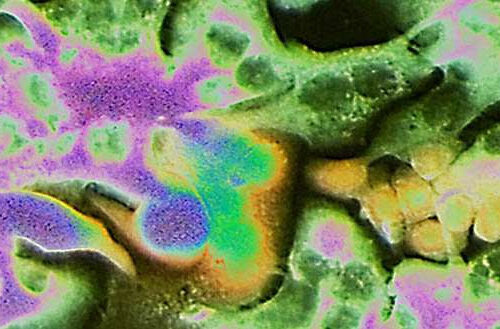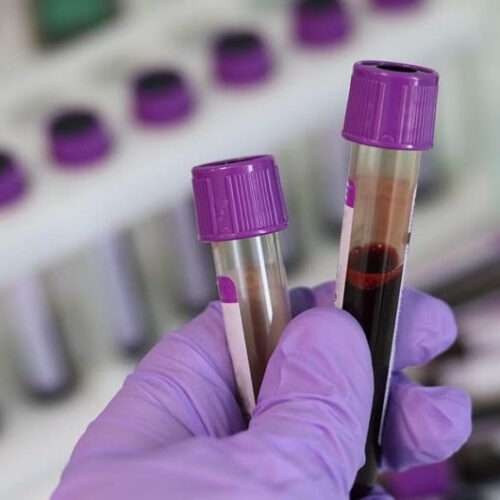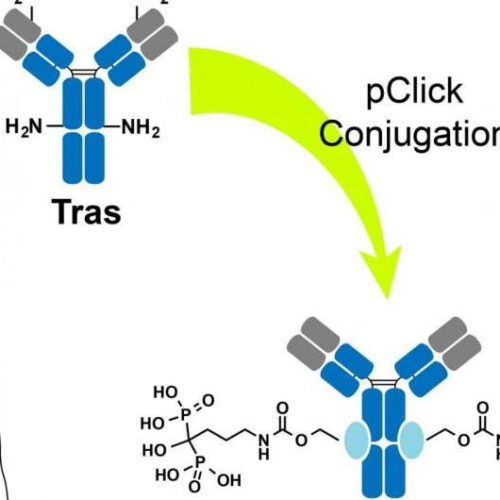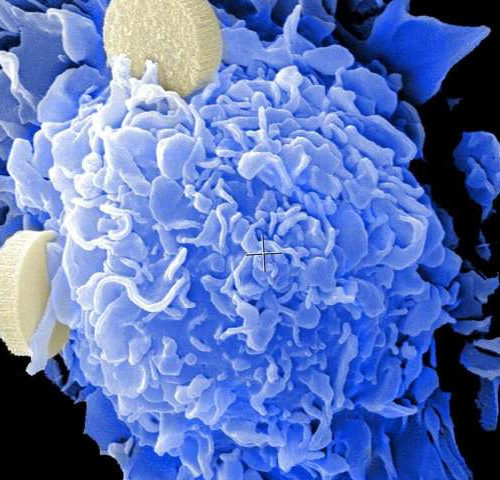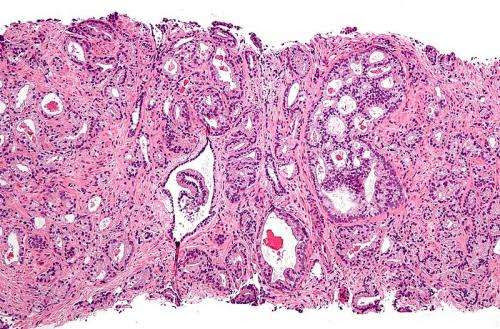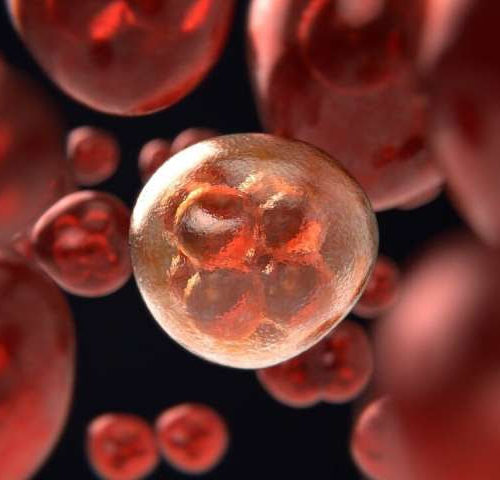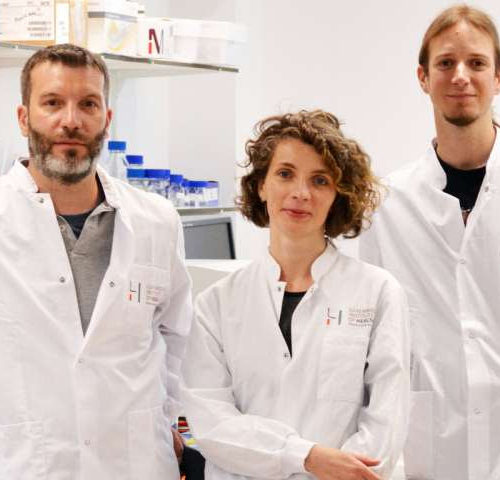by University of Geneva Photomicrograph of a cell co-culture of pro-metastatic primary colon cancer PAME (purple) mixed with induced migratory PIM (green). Credit: Ariel Ruiz i Altaba Metastatic cells occur in many forms of cancer. They originate in primary tumors and then break away and migrate. They travel through the tissues surrounding them, through blood...
Tag: <span>metastasis</span>
One cell in 10,000
Cancer cells aren’t good citizens—they’re selfish and lazy, loitering around in clusters, stealing resources from neighboring cells, and refusing to contribute to the good of the community. But the vast majority aren’t murderers. Out of every 10,000 cells that make up a tumor, 9,999 are basically innocent. Deadbeats, sure, but not criminals. That one, though? It’s...
Drug doubles down on bone cancer and metastasis
by Mike Williams, Rice University Scientists at Rice University and Baylor College of Medicine are using pClick conjugation to create therapeutic antibodies that target bone cancers. The conjugate incorporates bisphosphonate molecules that bind to the bone hydroxyapatite matrix. Credit: Baylor College of Medicine/Rice University Bone cancer is hard to treat and prone to metastasis. Research teams...
Metastasis prevention is a new weapon in the war on cancer
by University of Salford Professor Michael Lisanti and Professor Federica Sotgia have made a discovery that could turn cancer into a treatable disease and remove the fear from a cancer diagnosis. Despite years of research and billions of pounds of investment, there are no MHRA/FDA-approved drugs for the prevention of metastasis. As a consequence, cancer metastasis...
Small molecule treatment reduces colon cancer metastasis
University of Chicago Medicine investigators slow metastasis of colon cancer by ‘locking up’ cancer cells UNIVERSITY OF CHICAGO MEDICAL CENTER When cancer metastasizes and spreads throughout the body, it can severely change the prognosis of the disease. It is estimated that metastasis is responsible for 90 percent of cancer deaths. University of Chicago Medicine investigators...
Scientists discover novel drug target for pancreatic cancer
SANFORD BURNHAM PREBYS MEDICAL DISCOVERY INSTITUTE ANINDYA BAGCHI, PH.D., ASSOCIATE PROFESSOR IN THE TUMOR INITIATION AND MAINTENANCE PROGRAM AT SANFORD BURNHAM PREBYS. view more CREDIT: SANFORD BURNHAM PREBYS MEDICAL DISCOVERY INSTITUTE Scientists at Sanford Burnham Prebys Medical Discovery Institute have uncovered a novel drug target, a protein called PPP1R1B, that stops the deadly spread of...
Prostate cancer metastasis linked to revival of dormant molecular program
by Dana-Farber Cancer Institute When prostate cancer progresses to a more-dangerous metastatic state, it does so by resurrecting dormant molecular mechanisms that had guided the fetal development of the prostate gland but had been subsequently switched off, say scientists from Dana-Farber Cancer Institute. The study, an international collaboration with The Netherlands Cancer Institute, was published...
How metastatic cancer survives in the subarachnoid space
by Bob Yirka , Medical Xpress A team of researchers working at Memorial Sloan Kettering Cancer Center in New York has discovered how metastatic cancer is able to survive in the hostile subarachnoid space. In their paper published in the journal Science, the group describes RNA sequencing studies they conducted with patients with leptomeningeal metastases...
Drug treatment could improve effectiveness of immunotherapy for cancer patients
PROVIDENCE, R.I. [Brown University] — While immunotherapy — a form of treatment that uses the body’s immune system to recognize, attack and kill tumor cells — has given hope to people across the globe, it fails in a significant proportion of cancer patients. However, a new study published in the Nature journal Cell Death Discovery...
Renewed hope for treatment of pain and depression
by Luxembourg Institute of Health Researchers at the Department of Infection and Immunity of the Luxembourg Institute of Health (LIH) have developed LIH383, a novel molecule that binds to and blocks a previously unknown opioid receptor in the brain, thereby modulating the levels of opioid peptides produced in the central nervous system (CNS) and potentiating...

